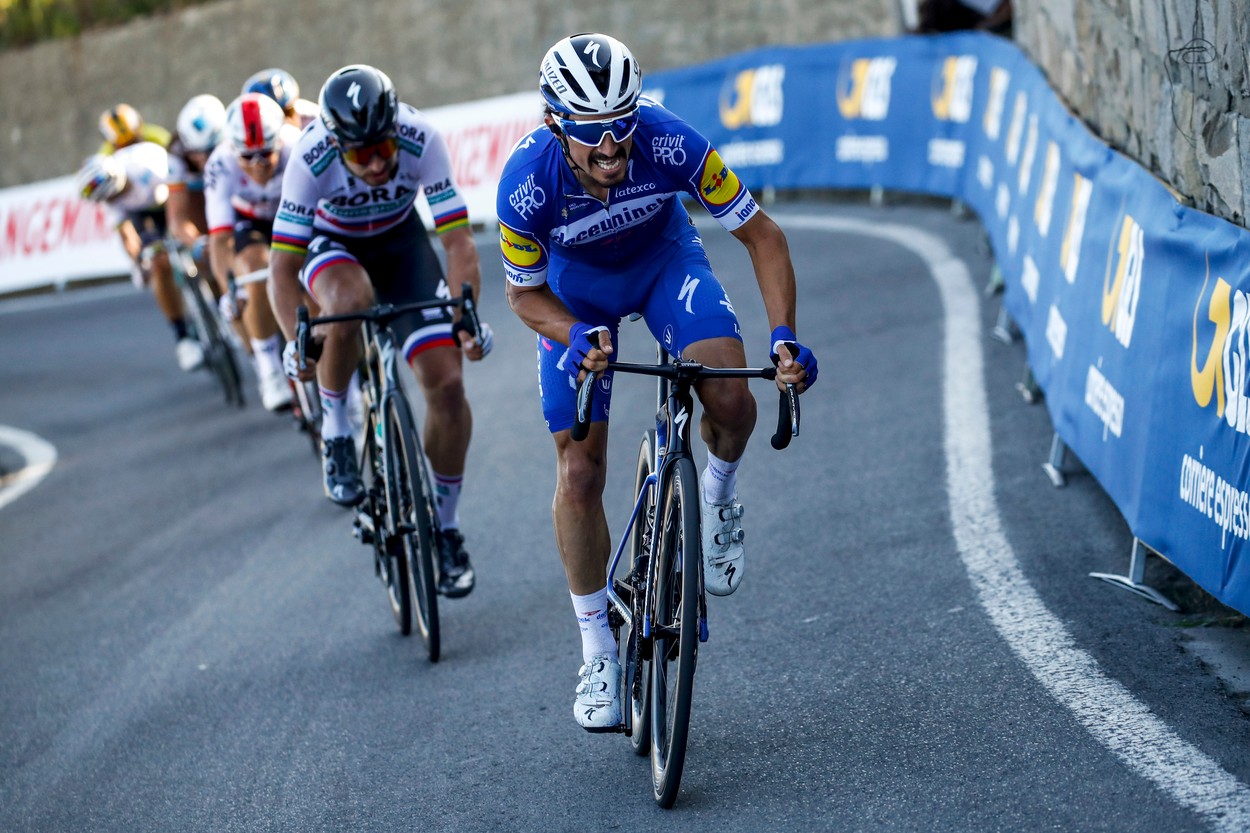Typical power-to-weight ratios
If you’re a recreational cyclist then your 1-hour power-to-weight ratio is likely something like 1,8W/kg. This would mean that an 80-kg recreational rider could sustain an average of 144W of power for one hour. His or her 5-minute PWR would likely be 2,5W/kg, which equals to 200W sustained for 5 minutes. If our cyclist wanted to call themselves a regular amateur cyclist than they would have to improve their 1-hour PWR to 3,0W/kg or, in other words, be able to sustain 240W for an hour. And they should also be able to sustain nearly 300W for 5 minutes to achieve a 3,7W/kg 5-minute PWR.
When it comes to pros, the difference is even more striking. Most pros have around 6,0W/kg 1-hour PWR, which means that a 65-kg pro can sustain 390W for an hour. And up to 455W for 5 minutes which equals to a 7,0W/kg 5-minute PWR.

Keep up with the peloton
In the Milan-San Remo UCI World Tour race, Jos van Emden averaged 138W for the first 10 km, which equates to only 1,86W/kg. This means that with a professional bike and some peloton riding skills, pretty much anyone could hang on mid-pack at the start of Milan-San Remo. Just to be clear, the top finishers averaged above 300W over the course of the race which means maintaining a PWR of way over 4W/kg for more than 7 hours! That is something most of us would find hard to maintain for half an hour.
Attack on a climb
In the same race, Peter Sagan attacked on the last climb. Michal Kwiatkowski, the winner of the race, was one of only two riders able to match his speed. He averaged 443W of power over this 3,5-km climb, which put him at an incredible 6,51W/kg PWR. That’s an impressive number, especially when you realize that he has been riding hard for almost 7 hours before this.

Time-trial at the Tour de France
Julian Alaphilippe won an individual time-trial stage at the 2019 Tour de France in 35 minutes. Rigoberto Urán finished 4th just 36 seconds later and what we know from his released data, he averaged 378 watts which means he had to sustain an incredible 6,2W/kg PWR.
The following two articles in this series will be all about how you can improve your PWR. Most of us will never get it as high as Tour de France pros but we can still make progress with the right training and nutrition.








